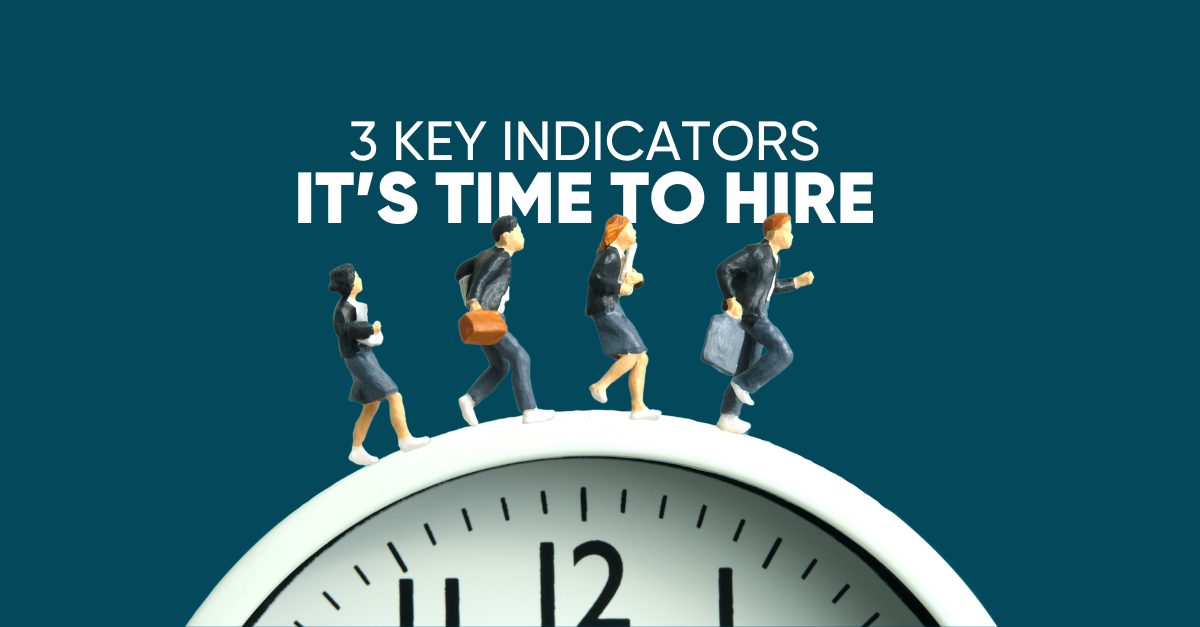Top teams don’t wait for staffing needs to become pressing before taking action. Instead, they focus on preparing for future demands rather than reacting to current shortages. This strategy, known as “capacity-leading-demand,” contrasts with the traditional “capacity-lagging-demand.” It’s an approach that calls for strategic thinking and foresight, understanding that staffing decisions are about preparing for and facilitating future success.
Expanding your team is not a decision to be made lightly. You have to think about the financial implications of a new hire, the specific roles they would fill, and how it might impact other members of the team. How do you know when it’s time? Here are some indicators:
1. You have limited time for growth activities.
If your team’s lack of capacity is hindering business development, it may be time to hire. Reallocating administrative duties to a new hire is money well-spent if it frees you up for high-value business development activities.
2. Team burnout is becoming evident.
If you or your staff are constantly overwhelmed, working long hours, and unable to take breaks, it’s a sign of excessive workload. Unfinished projects, declining morale, and increased irritability can also indicate the need for additional support. The well-being of your team is crucial for maintaining productivity and service quality.
3. Client service quality is declining.
An increase in client complaints, difficulties in client communications, and dropping satisfaction scores are red flags. If the current client-to-advisor ratio is unsustainable or if service levels are dropping, it’s time to think about expanding your team.
Recognizing the need for new team members is just the first step. The process of hiring brings its own set of challenges and risks. It’s never easy to find the right fit for your team, and there is always a learning curve involved with new hires.
It’s not just about filling a vacancy but about finding individuals who fit. Look beyond technical skill sets and consider the personality traits that align with your firm’s culture and values. The right personalities can enhance team dynamics, while the wrong personalities can do great harm. Candidates with empathy, resilience, and an ability to connect with clients are much more valuable than those who only possess the technical skills.
Remember, in order to scale, you can’t do everything on your own. Embracing this change and taking calculated risks in hiring is essential for the long-term growth and sustainability of your firm.
